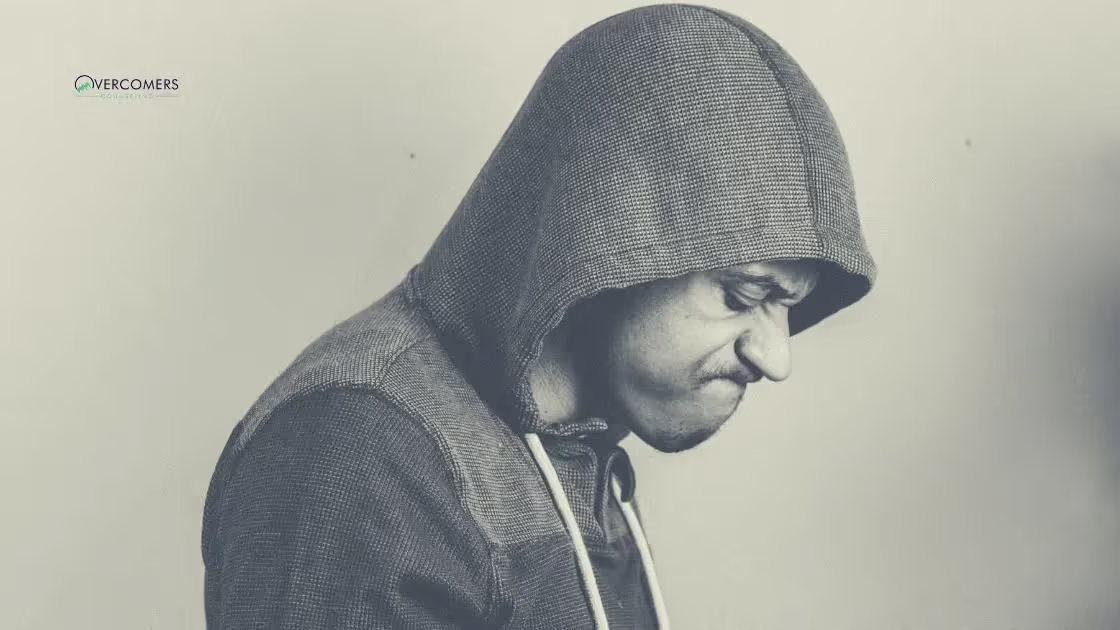Anger is a common emotion during grief, often intensified by the overwhelming sadness and sense of loss. In the process of grieving, individuals may feel...

Anger is a common emotion during grief, often intensified by the overwhelming sadness and sense of loss. In the process of grieving, individuals may feel angry as they navigate intense emotions, with the anger stage being a natural part of the healing journey. This feeling can stem from unresolved grief or a perceived loss of control, and expressing anger in a healthy way is crucial. Seeking guidance from grief counselors can provide vital support in understanding and managing these feelings. Connecting with a grief support group therapy or a solid support system can help individuals express anger constructively and address painful emotions, preventing prolonged grief disorder.
Grief can cause strong, intense feelings in people. Although there are some traits that people dealing with grief could share, most people process grief in peculiar ways. Most people also have a broad range of emotions they experience during grief. One of these emotions that you might experience is anger. Being angry is a normal part of the grieving process for most people. This anger could be directed at particular things or general things like the world or even the reason for grieving. It is essential to let yourself grieve in your own natural way. Even if this is through experiencing anger, it might be tempting to block out some perceived negative emotions, such as anger and sadness. The reason why grieving people get angry could be to process grief. However, you might lose control of your anger at difficult times. There are methods to channel your anger. For instance, you could pick up some exercises that help manage anger safely and safely.
Displacement of feeling is one of the reasons why grieving people get angry. Displacement is a way one's mind can protect itself from negative thoughts or emotions. Your anger could be your body's defense mechanism to avoid dealing with your own feelings. It can be easier to be angry than to feel vulnerable. Displacement is usually unconscious, so it is difficult for people to become aware of it. For instance, in dealing with the loss of a loved one could be unable to express their true feelings. Anger can be an easy target for people to disguise their true feelings. Consider if you have had any sudden change to your behavior since you started grieving. Self-reflection will be vital to addressing any displacement. Sometimes, you might be unable to address the source of your displacement and anger. If you lose someone dear to you, it is likely impossible to speak to them again. However, it will help your anger figure out how to address your true feelings.
One of the emotions that people commonly feel during grief is pain. The loss of a loved one can cause a person to be in intense pain. Being in pain is one of the reasons why grieving people get angry. Naturally, a person in pain is likely to be grumpy and easily frustrated. You might have noticed that when people grieve, they might be less patient and more likely to respond to simple things with anger. In this case, you will have to address the underlying pain to manage your anger. Unfortunately, pain from grief can be difficult to manage. There is no simple manner for people to get rid of the pain. Pain is a significant part of grief for most people. It might be difficult to make rational decisions when you are in pain. Most people have a natural process of grief. Blocking your feelings could hurt the grieving process of a person. It might be easier to concentrate on self-restraint until the pain of losing a loved one declines.

Death can make a person feel a loss of control over their life. Based on the course of life, it is easy for a person to assume that they control their lives. However, losing someone could be the reason why grieving people get angry in their attempts to regain the notion of control of their lives. Losing something dear to you can be disorienting. Facing the inability to control certain aspects of life could compensate for the inability. Anger can be a tool that some use to retain control of their life. Since death can come to anyone at any time, death can shake the sense of control people have. Death can suddenly remind people how little control we have in the grand scheme. In processing the shock of death, some people attempt to control their lives even more. The feeling of seeking control through anger is understandable. Rather than facing the fear that comes from acknowledging the real control a person has, some people choose to rely on anger to deal with the feeling. However, anger does not mean a person has more control over their life.
A big part of being human is forming intimate relationships. The loss of any relationship can be challenging to manage. In the case of death, the relationship could change abruptly and drastically. The death of a loved one will likely change your life. The extent of your closeness with your lost loved one can be hard to deal with. For instance, the death of a parent or a wife can be a significant gap in your life. This can create feelings of abandonment in some people. This does not necessarily mean a person is angry at their loved one. Instead, the focus here is on feeling alone due to the absence of the loved one. The absence of your loved one can lead to other feelings associated with abandonment. A grieving person might have lost their confidante and advisor. This is one of the reasons why grieving people get angry.
Dealing with grief often brings about feelings of sadness and loss, leaving many feeling overwhelmed by common thoughts and emotions. Here are several helpful strategies to cope with these intense experiences.
Grief processing can be a challenging phase of life for most people. A common response people have in grief is anger. To understand how to provide grief support, it is worth studying why grieving people get angry, which includes processing grief, displacement of other feelings, being in pain, trying to regain control, and feeling abandoned.
https://www.verywellmind.com/the-anger-stage-of-grief-characteristics-and-coping-5295703
https://whatsyourgrief.com/anger-in-grief-makes-you-angry/
https://thriveworks.com/blog/grief-becomes-anger-work-through-grieving-process/
https://psychcentral.com/health/grief-and-anger#why-am-i-angry
If you find yourself having difficulty managing daily activities due to lingering feelings associated with grief such as sadness, anger, guilt or numbness; then it might be beneficial for you to seek professional help through our Colorado Springs Grief Counseling services. Our therapists are trained in helping clients identify their needs and goals related to grieving.
Grief can seem worse in the morning as the reality of the loss is often one of the first thoughts upon waking. This can be particularly true if you shared many mornings with the person who has passed away during wonderful years spent together.
Yes, we provide supportive counseling for family members who are struggling with the loss of a loved one. Our compassionate therapists can help you gain insight into your feelings and provide constructive strategies to cope with the pain of bereavement.
Grief may feel worse at night because sleep disturbances are common during the grieving process. As nighttime falls, distractions diminish and we're left alone with our thoughts, which can make the loss feel overwhelming.
There are a variety of symptoms that can be associated with grief in the elderly. Some common physical symptoms include fatigue, changes in appetite, and difficulty sleeping. Emotional symptoms can include sadness, anger, anxiety, and guilt. It's also common for those who are grieving to withdraw from social activities and lose interest in hobbies or activities they once enjoyed.
It is completely normal to feel dread or even fear when thinking about the upcoming holiday season. One way to ease your anxiety is by planning ahead and being prepared for how you will deal with tough moments. If there are certain events you know will be difficult, try to come up with an exit strategy beforehand so you can leave if needed. It can also be helpful to talk to a therapist or counselor before the holidays to help you manage your expectations and emotions.